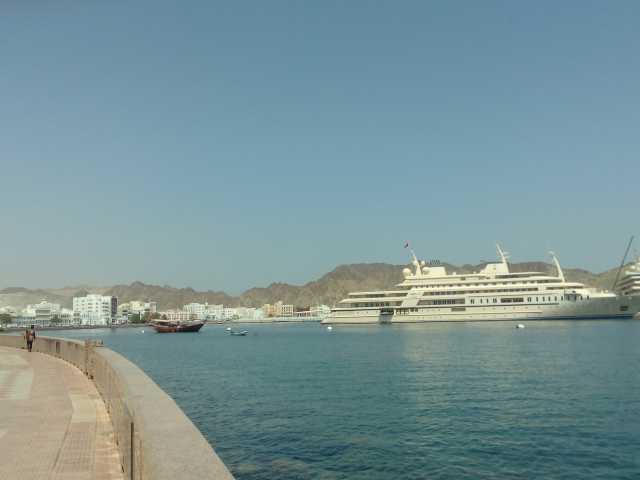Researching identities in Oman
| Date: | 11 September 2017 |
| Author: | Nicky Theunissen |

In April 2017, I found myself on Omani soil with a link to an online questionnaire, an interview guide for informal, unstructured interviews and a recording device. I figured the data collection would go smoothly, as I already had a personal network in Masqat. I was wrong. It turned out that my specific research topic – the relation between national and tribal identification among young Omani adults – was way more sensitive than I had anticipated. Many people did not want to talk about tribal or national forms of identification, as identities as such are related to politics, and people did not want to discuss politics.
With lots of effort to establish rapport and with a lot of help from my friends, I was eventually able to gather the needed data. And while analyzing the data, I found that my struggles in the collection process where actually one of the mechanisms that could be identified. I found that there is a reciprocal relation between national and tribal identities in Oman amongst young adults. This relation is ‘created’ through three underlying mechanisms: state suppression, something I call ‘uqdat al haqara, and urban myths. For this blog, I will focus on ‘uqdat al haqara.
‘Uqdat al haqara was a term used by Ali (note: names in this blog are pseudonyms), in our first conversation about the topic. After I shared that I had the idea that there was somewhat of a rivalry between different groups within Oman, he answered that this was not only typical for Oman, but for each Arabic country with a (historic) tribal system. He called this rivalry ‘uqdat al haqara, which can be translated to ‘knot of obsequiousness’, or the notion of inferiority. This term can be seen as a way of identifying against, where the otherness of ‘the other’ is regarded as inferior.
Despite Qaboos’ efforts to not only unite the country, but also to please all ethnic groups and tribes by granting them certain places in the state apparatus, tribal influences can be found everywhere and anywhere. It is the main form of identification, according to two participants of a focus group discussion I conducted:
Layla: Because that’s how you are able to distinguish yourself. Like if you asked someone who they are, you’re more likely to hear first name and last name, rather than just the first name.
Aziz: And to us, usually, that last name follows with some sort of a status quo.
The status quo that Aziz refers to expresses itself in a mechanism called wasta, which means that in order to arrange something, one should know an important person at the place where the arrangement is wished. This can be a person within the family, although it can also be someone from an amicable tribe – the bigger the status quo, the more likely it is that a tribe will have plenty of amicable tribes.
The ‘uqdat al haqara' that is a common feature of tribal systems, is also present on a national level. It expresses itself in small details, for example when Amin and I went out to buy burgers. Many service related jobs, like working in shops and restaurants, and carried out by foreign workers. We ordered the burgers at the venue, after which we went back to the car to wait for our take out. When the burgers were brought to us by an Omani man, Amin said: ‘Ah, that’s what I like. Omani service.’ The quote illustrates a profound preference for Omanis and a certain perceived inferiority for expats – service by Omanis is perceived to be better than service by foreigners.
In other ways, the tribal and the international relate to each other. When I just published my questionnaire, I got an upset message from Heydar, a young Omani with a Lawatiyya background, one of the ethnic groups in Oman. He did not agree with a statement question, where it was stated: ‘I feel connected to the place where my ancestors are from, which is India’, as he believes Lawati’s do originate from the Arabian Peninsula. When I shared this story, weeks later, with Basma, she shrugged and said that it did not surprise her that Lawatiyya people do not wish to be reminded of their Indian roots. ‘I don’t mean to be rude, but we don’t respect them’, she said, referring to Indians, or more specifically Indian expats.
Tribal and national identities exist despite and because of each other. ‘Uqdat al haqara expresses itself in feelings of tribal pride and superiority, but also in pride and feelings of superiority in relation to expatriate workers, surrounding countries with societal difficulties and Oman’s own pre-1970 history. The notion of ‘uqdat a haqara is strongly interwoven in the country’s societal structure and the identity formation processes of its citizens. Therefore, tribal and national notions of inferiority cannot be seen as separate mechanisms and together, they form one of the key aspects of Oman's dualistic identity.

